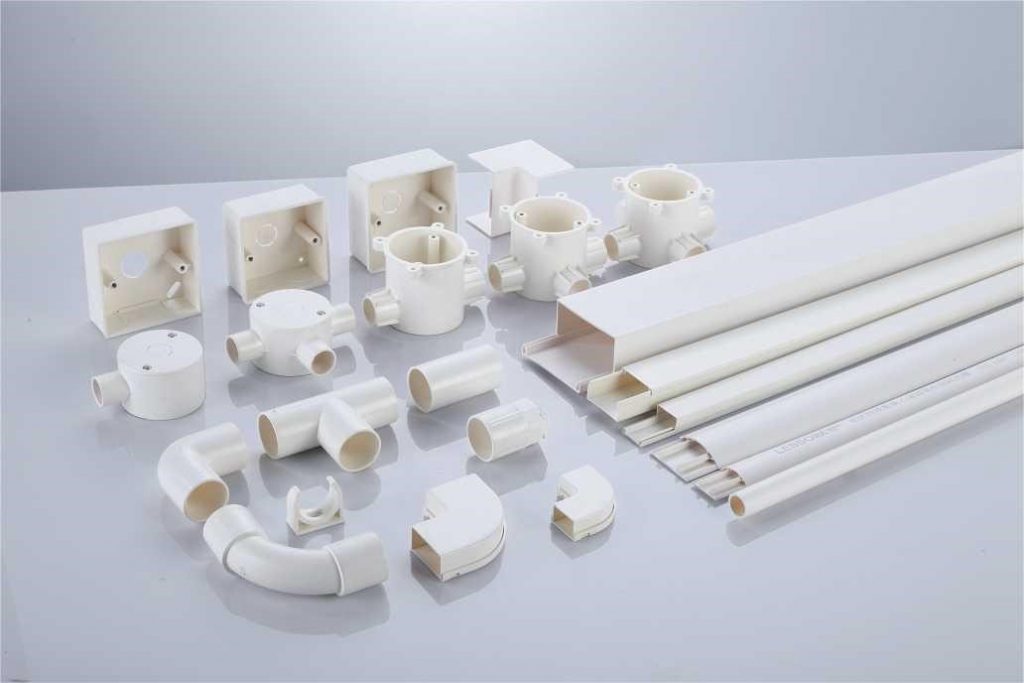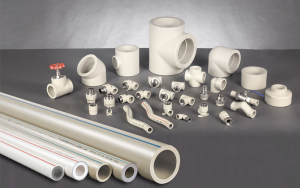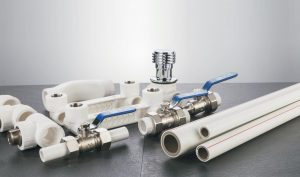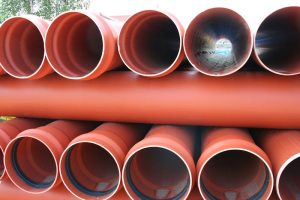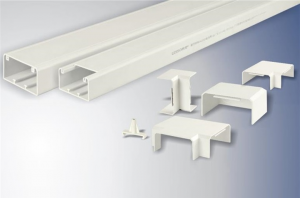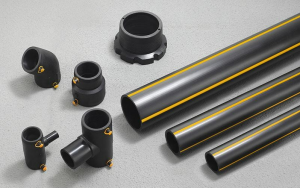When we talk about conduits, we are talking about pipes that are used to conduit electrical wiring through buildings. These conduits can be installed indoors or outdoors and there are a number of reasons why you should be using conduits for your electrical wiring. In this article, we will explain the purpose of electric conduits, and when are the right times to use them.
Part 1. What is Electrical Conduit?
An electrical conduit is simply a pipe that is designed to conduct electricity. These pipes are used for a number of different purposes including building interiors and electrical wiring. Conduit pipes are used in order to protect your home or business from an electric fire, as well as for aesthetic reasons (such as the look of the buildings).
Also, conduits can be used to route electrical wiring, such as in commercial and residential buildings. Conduits are often made from PVC plastic, galvanized steel, aluminum or copper. All of these metals are good conductors of electricity and will not allow the electric current to flow through the pipe but can still carry the electricity safely through the building. Some people even use stainless steel as a conduit because it is more durable than galvanized steel.
Electrical conduit pipes are made in a number of different sizes and they can be used indoors or outdoors. Conduits are usually used to protect your home from a fire caused by electrical wiring, but they can also be used for aesthetic reasons. Conduits can be made from plastics, galvanized steel, aluminum, copper, or stainless steel.
Part 2. What is the Purpose of Electrical Conduit?
The purpose of an electrical conduit is to be able to adequately protect your home or business from electrocution, as well as for the aesthetic purposes of your building. In addition, electrical conduits are used for this purpose because they can allow different wires to safely run through the same pipe; this is especially important when it comes to large heavy equipment such as electric motors, generators and other exposed wiring.


Additionally, these pipes can be used as a way to expand electrical wiring inside your home or business, and they can be used when you are rewiring a building. The right time to use an electrical conduit is when you are manually running wire for electricity, or when re-wiring a building. Before using a conduit, be sure to check your local building codes and regulations; there are sometimes restrictions on how to install one.
Part 3. Where are Cables and Conduits Used?
Cable conduits and electrical conduits are used in a number of different ways, but the most common way is to use them inside of a house. When installing these conduits, make sure to use conduit support; this is simply a piece that is installed into the pipe itself. This is not only important for the stability of the conduit, but it is also especially important because these conduits can become very heavy when they are covered in wires and cables.
Also, you can use these conduits for the main electrical wiring in your home (in addition to using electrical junction boxes). However, you need to make sure that all of your conduit pipes are properly grounded; this will help prevent an electric fire from occurring.
Lastly, they are used in commercial buildings. In addition, an electrical conduit can be used on the outside of a building as well. The outside use of these conduits is especially useful in order to protect a building from falling debris and other damage that might occur on the outside of a building.
Part 4. Can Wire be Buried without Conduit?
Although you can bury wires without the use of conduits, you should never do it. If you are looking to bury wires, make sure that you use an expert to ensure that this is done correctly; burying electrical conduits or cables is a very difficult process. The reason behind this is because the ground itself has an electrical resistance and if the soil becomes wet and moist enough – then it could create an open circuit.
Additionally, electricians can not bury wires without the use of a lightning arrestor, as these are designed to slow down a lightning bolt. The reason behind this is because they work to break the flow of electricity created by a lightning bolt; this prevents damage to your electrical system.
Part 5. How can you Choose the right electrical conduits for your home or office?
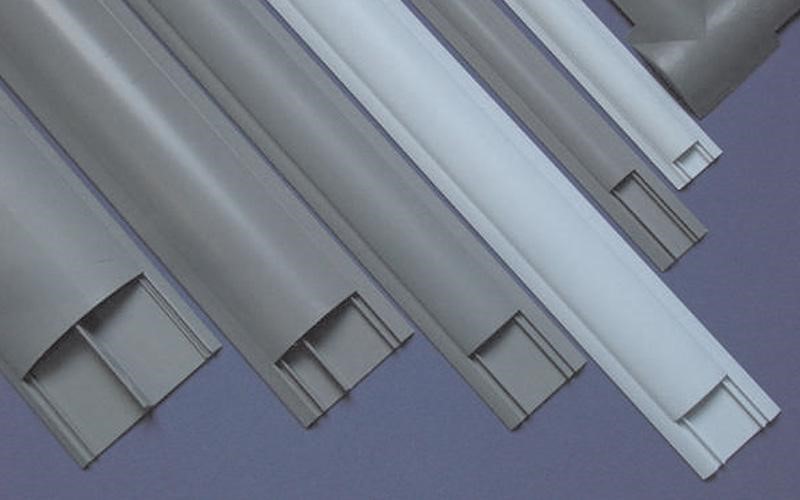

When you are looking to buy a pair of electrical conduits, you should look for several different things in order to make sure that they are the correct ones for your purpose. The first thing that needs to be considered is the function of the trunking, such as whether it is convenient to install and disassemble, whether the fire resistance or insulation performance is good, whether it is easy to bend, whether it is moisture-proof and acid-base resistant, etc.
It is also important that you understand what type of pipe these conduits are made from. You should also try to find out about the material that the electrical conduit is made from; this will give you an idea of how long it will last before it needs to be replaced.
Also, you should make sure that you do not buy conduits that are wrapped with asbestos, as this material contains small fibers that can be released into the air if they are exposed to high amounts of heat.
Summary
LESSO electrical conduits or Cables are used for a variety of different purposes, which include being used to safely run wires through the interior of your home, as well as wiring up large electrical equipment such as motors, generators, and air conditioners. You can use these pipes outdoors or indoors and they can be made from several different metals.
When burying wiring with a LESSO conduit, make sure not to do it if you are not willing to have the work professionally done. Also, know the different materials that are used in the making of these pipes; this will help ensure that you select a high-quality pipe for your purpose.
The most important aspect when keeping wires safe and grounded is to make sure that they are correctly connected and stay connected throughout the duration of your home or office. To ensure this, there are numerous types of LESSO electrical conduit available, depending on your project’s needs.
Recommend Reading
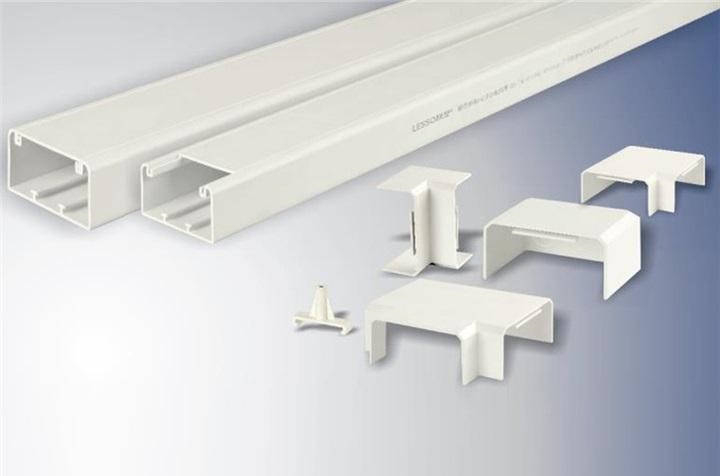

What is the Difference between Conduit and Trunking?
There is more than one option to store and keep cables organized during an installation. The containment systems you will select will be influenced by
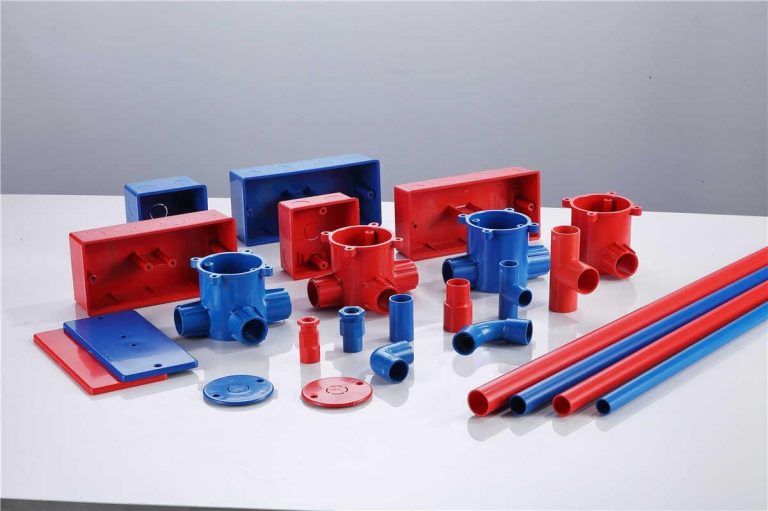

How Much Do You Know About PVC Conduit
Conduit is crucial for keeping your home safe from potential threats. There are different types of conduits suitable for different applications. However, PVC conduit is


